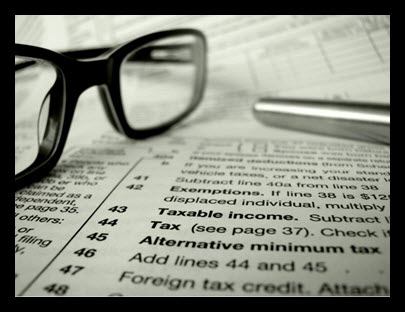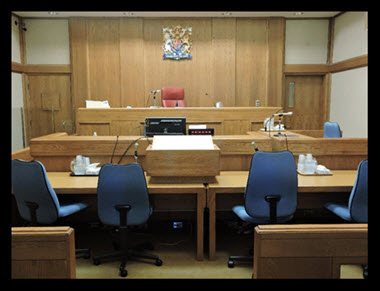Available as a podcast!
When Dan was having a tough time, his friend Chris lent him $7,000. When Dan got back on his feet he promised to repay the loan but didn’t, so Chris finally sued Dan in Small Claims Court. The judge made a payment order that Dan pay $7000 plus interest and expenses to Chris. Dan still hasn’t paid.
How can Chris collect that money? Or if Dan can’t pay it all immediately, how could he arrange to make monthly payments on a payment schedule? This eNews answers those questions.
At the end of a trial, if the judge decides that one party must pay money to the other party, the judge may set a schedule for the debtor to make payments until the full amount owing is paid. If the judge does not set a schedule, then the debtor must pay the full amount right away.
Chris’s options when Dan didn’t pay the full amount ordered right away are set out in Small Claims Court Rule 11. Chris (the "creditor") may be able to seize and sell property Dan (the "debtor") owns or garnish money that would otherwise be payable to Dan – like part of Dan’s wages from employment. Or either party could request a payment hearing where a judge or judicial justice will assess Dan’s ability to pay and decide whether to order a payment schedule.
Some Residential Tenancy Branch decisions and orders and Civil Resolution Tribunal consent resolution orders and final decisions can be filed in the Provincial Court for enforcement. Once filed, they have the same force as a Provincial Court judgment, and can be enforced using the same procedures described here.
When a creditor requests a payment hearing
To ask for a payment hearing, Chris must file a Form 12 Summons to a Payment Hearing in the court registry and deliver a copy to Dan (the legal term for this is “serve the debtor”).
Once Chris files a Form 12 Summons form he cannot take any other steps to collect payment (like garnishing or seizing) until the payment hearing is finished, or he withdraws the summons, or it is cancelled. However, this rule does not apply if Dan, the debtor, has asked for a payment hearing.
When he receives the summons, Dan must collect documents that show his financial circumstances. Debtors must bring to a payment hearing any records relating to their:
• income and assets
• debts
• details of any assets that have been disposed of since the claim arose
• the means they have now or may have in future to pay the amount owed.
In addition, a creditor like Chris can list on the summons form specific documents they want the debtor to bring to the hearing. These records might include:
• copies of recent tax returns and CRA notices of assessment
• pay stubs or income statements
• bank account records
• credit card statements
• any records showing money owed to other people.

It is important for a creditor to request all the financial documents they think may reveal the debtor’s real financial circumstances. The judge needs to see the debtor’s financial documents to make a fair payment order. If the debtor doesn’t bring enough information to court, the judge may reschedule the hearing and order the debtor to produce specific documents or evidence for the next hearing. In that case, the judge could order the debtor to pay the creditor’s expenses for attending court only to have the matter put off.
Dan should send Chris copies of his financial documents before the hearing. A debtor should provide a copy of their financial information to the creditor far enough before the payment hearing that the creditor has time to review the information and prepare any questions they want to ask at the hearing.
When a debtor requests a payment hearing
If Dan wants to request a payment hearing, he would file a Form 13 Notice of a Payment Hearing in the court registry and serve (deliver it to) Chris. As the debtor, Dan would bring to the payment hearing copies of the same information listed above in order to explain his financial circumstances. Again, Dan should give Chris copies of his financial documents far enough before the hearing that Chris has time to review the information and prepare questions.
At the hearing
The hearing may be conducted by a Provincial Court judge or a judicial justice.
A debtor should bring to court 3 copies of their financial documents – one for themselves, one for the creditor and one for the judge to review. Either party can suggest a payment schedule to the other before the hearing, and if they agree the judge or judicial justice can make an order without hearing any evidence.
If they don’t agree, there will be a hearing. When their names are called, Chris and Dan would stand in front of the judge, state their names, and Chris would tell the judge the current amount Dan owes and what payments, if any, he has made so far.

Dan will be given a chance to testify about his ability to pay, after taking an oath or affirmation to tell the truth. He will need to:
- describe his financial circumstances to explain why he can’t pay the full amount immediately
- explain the financial documents he’s brought
- provide evidence (receipts, cancelled cheques) of any payments he has made
- propose a schedule for payments
Dan needs to remember that an order has already been made that he owes the money and the only purpose of the payment hearing is to consider a payment schedule. The payment hearing is not an opportunity to reopen the trial or to argue that he shouldn’t have to pay anything at all.
Chris will be given a chance to question Dan, and the judge may have questions as well. Chris’s questions should focus on Dan’s ability to pay the money as soon as possible.
After Dan has testified, both parties will have a chance to sum up, and tell the judge what order they think the evidence justifies.
After hearing the evidence and their submissions, the judge may order a payment schedule, one that is fair to both parties. A debtor has the burden of satisfying the judge that the full amount owed cannot be paid immediately. If they fail to prove this, for instance by not providing adequate proof of financial circumstances, then the judge is likely to order immediate payment.
Changing or cancelling a payment schedule
Where a judge has already ordered a payment schedule, Small Claims Court Rule 17(3) allows either party to apply to change or cancel the terms of the payment schedule. This is done by filing with the court and serving the other party with a Form 19 Application to a Judge.
If a debtor doesn’t obey a payment order
If Dan failed to make the payments ordered in a payment order, whether it is an order for immediate payment or payment by installments, then Chris could take a further enforcement step called a “default hearing”. Watch for a future eNews on default hearings.
For more information on enforcing payment orders, see Getting Results, one in a series of Small Claims How-To Guides on the BC Ministry of the Attorney General website.
Photo credit (tax return): Mr. Doomits
This article provides general information only and should not be used authority in court proceedings or as a substitute for legal advice.

